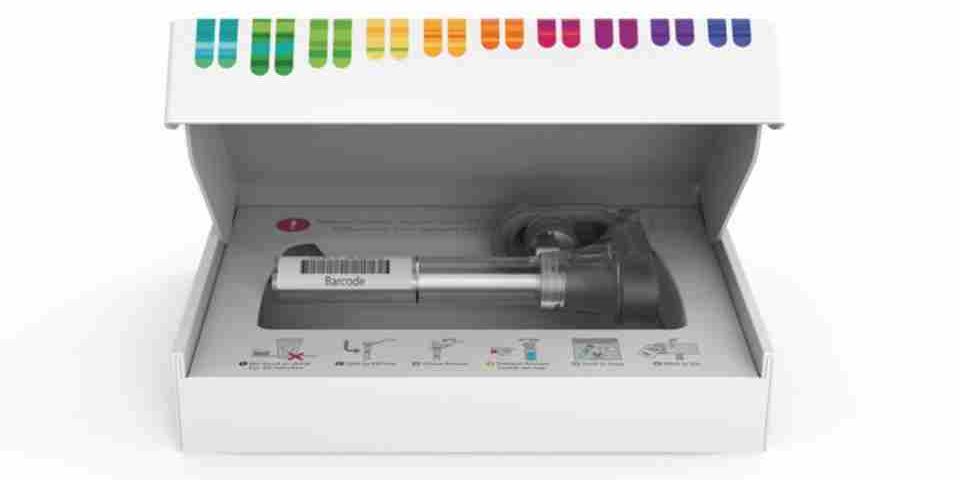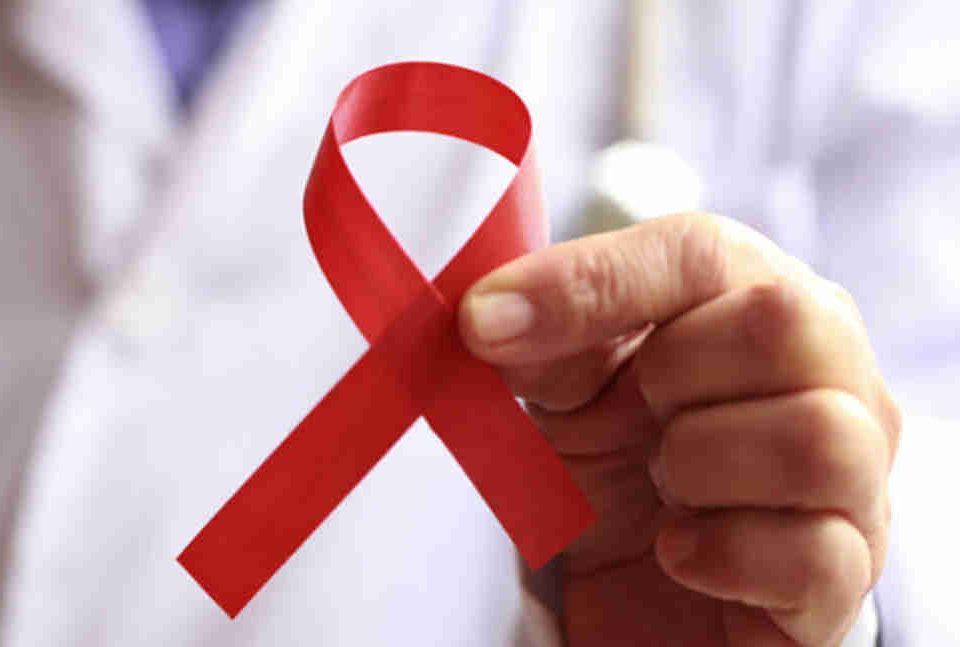- 如有疑问,请联系电邮
- customer@ihealth66.com
USNEWS:最佳DNA检测试剂盒!

最新临床试验:联合化疗治疗新诊断的高危B型急性淋巴细胞白血病和类ph-tki敏感性突变的年轻患者
2019年1月8日
中国原发性肺癌诊疗规范(2018年版)(2)
2019年1月8日By Brad Berman
正当中国基因检测的“群雄大战”造成的市场混乱之际,技术及市场服务的起源地——美国,已经进展到了新的阶段。是什么阶段?USNEWS健康专栏专家精心撰写了这篇文章,旨在说明这个问题。事实上,美国的基因检测不仅完成了市场整合,也早已进入了医院的标准检测程序。毕竟基因靶向药物的临床应用也是最先在美国进行,而基因检测也是靶向药物的选择与应用的基础。医院建立自己的检测实验室,不仅方便了患者,也可以减少中间环节,缩短检测时间造成的治疗耽搁期,另外就是医疗保险也已经覆盖了该项检测,这也是促使医院开展此项检测的起因之一。
现在,基因检测又向前迈出了一步,那就是直接面向消费者!太神奇了,老百姓可以自行购买基因检测试剂盒在家检测,这是一种什么感受?中国老百姓什么时候也能享受到该服务呢?不清楚,还是先来看看这篇文章吧。
ARE YOU CURIOUS ABOUT your ethnic ancestry? Are you mostly interested in a detailed report on your genetic health traits? Are you trying to connect with relatives (known and unknown) to create a family tree? How much importance do you place on privacy?
These are the key questions you’ll need to answer before selecting the best direct-to-consumer DNA test kit. While all the leading DNA tests utilize the same basic scientific principles, there are key distinctions between the type of services provided by each company. This guide provides the essential information you need to choose the DNA test kit that best satisfies your goals.
How Does DNA Testing Work?
Sixty-five years after the discovery of DNA’s structure, it’s now easy to spit into a vial, ship the saliva to a lab and, a few weeks later, receive a report on the unique biological code that distinguishes you from other human beings.
Your DNA samples will be compared to large reference datasets of DNA (sometimes called reference populations or reference panels). Testing companies use reference panels to find links between your DNA and people located in dozens or even hundreds of regions in the world – thus creating an estimated map of your ethnicity. In addition to providing charts and maps identifying your most likely ethnic heritage, some DNA services also analyze biological features, health characteristics and your propensity for certain diseases based on your genome.

The results of a DNA test indicate the geographic regions where some of your genetic code matches the DNA of people who have been known to live in those places for many generations. The DNA-based ethnicity analysis paints a broad picture of your family’s past ethnic subgroups. For example, the test results might indicate that your ancestors came from somewhere in East Asia without isolating your family’s history to Japan or Siberia. DNA testing often reveals that our ethnicities are more mixed than we realized. Our mixed heritage and a lack of diversity in the reference panels (especially from Asia and Africa) are significant limitations to providing more precise results.
Yes. A DNA test could help you learn about the background and traits of your biological parents, siblings or cousins. The test company might even provide a way to contact the relatives it discovers. It’s important to be aware that genetic information could also reveal that someone you believe to be a biological relative actually is not related to you or introduce you to a cousin or half-sibling you didn’t know existed.
Most DNA services allow you to opt in or out of sharing your test results with others (and the same for allowing the company to use your results for research). You can increase the likelihood of finding a long-lost relative by using a DNA test with a relatively large database of customers who had their DNA tested – or by uploading the results of your test to shared databases such as GEDMatch, FamilyTreeDNA and MyHeritage.
Can a DNA test improve my health?
Services offering health-related information, like 23andMe, can reveal genetic markers for certain health conditions. A report might tell you, for example, if your genetic variants indicate a higher risk of conditions such as Alzheimer’s, celiac disease and Parkinson’s disease. You might also learn about DNA-related traits like being a light sleeper or experiencing difficulty losing weight. The presence of these genetic markers does not mean that you definitely have those traits or will absolutely develop the specific diseases. The testing companies sometimes offer information about ways to minimize health risks through diet and lifestyle choices.
Companies like 23andMe also provide carrier reporters, which will alert you whether you might carry the genetic variant for a disease like cystic fibrosis, sickle cell anemia or Tay-Sachs. Being a carrier means you could pass the variant to your children, so being aware can help you take steps to protect your family’s health.
How to Choose the Best DNA Test Kit
U.S. News conducted a survey of 100 consumers who used a DNA test kit to learn how they chose their kit. Here are the three factors they considered most important in the decision-making process:

1. Size of the Database
How important is the size of a company’s database? That depends on whether you’re seeking information about ethnic heritage, working on a family tree or exploring how your genetics might affect your health.The quality of DNA test results is dependent on many factors, including the diversity of the test company’s reference population and how the company selects the specific portions of the genome used to make a match.
One benefit to a larger database is that it can help you find more relatives. “The size of the database is important for cousin matching because the larger the database, the greater the likelihood of matches that could be helpful for genealogy or making a family connection,” says Blaine Bettinger, a professional genealogist based in Syracuse, New York, who specializes in DNA evidence. He’s the author of “The Family Tree Guide to DNA Testing and Genetic Genealogy.”
However, a larger database is not meaningful for ancestry reports.“I’m not aware of any correlation between the size of the database and the quality of the ethnicity estimate,” Bettinger says.
The typical at-home DNA test captures a snapshot of approximately 1 million or fewer specific genomic locations – the A, T, C and G designations that make up the fundamental units of your genetic code. The testing companies typically analyze variations in your genome that are called single nucleotide polymorphisms, or SNPs. Bettinger says the selection of specific markers and the resulting ancestry estimates will differ between one test company and another, but “there are going to be a lot of similarities.” Additional Y-chromosome and mitochondrial testing can be helpful distinguishing between the genetic heritage that comes from your mother versus your father. For example, you might learn that you have Native American DNA specifically from your mother. The Y-DNA and mitochondrial tests are conducted by 23andMe but not by Ancestry. Only males can give a sample for a Y-DNA test.

Sources: Ancestry, 23andMe.com, ISOGG, thednageek.com
2. Genetic Health Screening options
Ancestry and 23andMe both offer a report on genealogical ancestry. But 23andMe also issues a Neanderthal Ancestry Report that can trace your ancestors’ migration from Africa to the present day. These tests are capable of identifying how much DNA you share with prehistoric humans. Studies suggest that genetic variations inherited from Neanderthals could play a role in your height, hair texture, sense of smell and other biological characteristics.
You can also use 23andMe to test for wellness, traits and genetic health risks, such as conditions that are not present but might be carried in your DNA. For example, 23andMe’s Carrier Status Report could indicate sickle cell anemia, which is commonly carried by people of African descent, or Bloom syndrome as being carried by people of Ashkenazi Jewish heritage. While Ancestry doesn’t provide health-related information, the company offers an add-on $10 report on genetic traits such as earlobe type, eye color, freckles and male hair loss.
3. Privacy
Whether you purchase an ancestry-only test from 23andMe or a combined package of ancestry and health info, the testing is conducted the same way. The lab captures the raw data used for biomedical analysis. This could be helpful if you buy the 23andMe Ancestry Service at first but later decide to upgrade to its Health + Ancestry service. While Ancestry does not offer health information in its test results, the company similarly collects biomedical DNA data.
Both companies monetize anonymous customer health data by selling it to pharmaceutical companies and other firms. Family Tree DNA, which sells DNA tests ranging in cost from $79 to $199, doesn’t test for or analyze health-related DNA markers. It exclusively uses its own lab, which prevents other parties from gaining access to your data.
You can opt in or out of having your DNA used for research. However, testing companies cannot always ensure how research partners or third-party sites might utilize your DNA or identify you or your relatives – even if the company promises to keep genetic information anonymous. Your genetic test results could be uploaded to shared databases that don’t have the same level of commitment to privacy as the testing company.
Laws surrounding genetic privacy are evolving. Currently, they might not prevent the police from connecting your DNA to activities including crimes. DNA companies say they resist efforts to disclose your information, but a government subpoena or warrant could force them to comply. The likelihood of this occurring – and the ability of third parties to make the connections – is small. But the potential will increase over time as more people are tested and your results are added to ever-larger databases.
Our Methodology
U.S. News created the 360 Overall Ratings system using an unbiased scoring methodology based on a composite analysis of the ratings and reviews published by credible third-party professional and consumer review sources. The ratings are not based on the personal opinions, tests or experiences of U.S. News. To reduce bias, we review multiple sources for an accurate and comprehensive view. To provide the most useful guidance to consumers, U.S. News also analyzes the qualitative aspects of reviews, assigning an accolade (when appropriate) to DNA test kits based on the type of test conducted – and the unique type of test results or level of privacy provided. The importance of those characteristics are described above in this guide.





